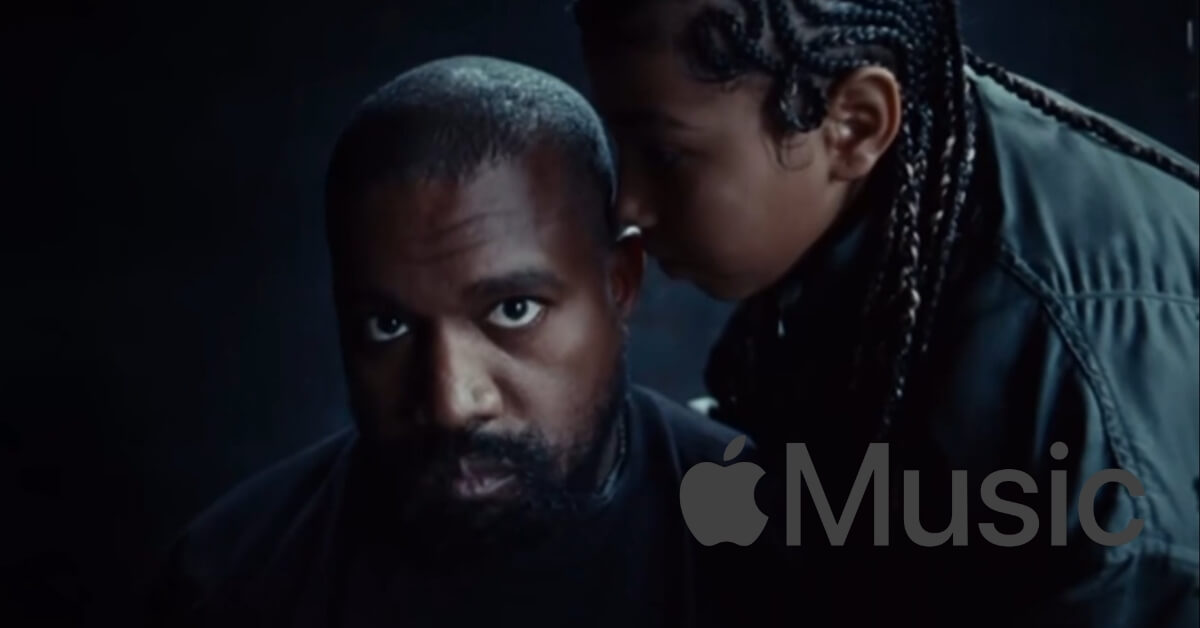One who walked on the waters of the music industry now finds himself shadow-banned and banished by the same people who put him on a pedestal first. Well, that might have been a slight exaggeration…but that’s what it seems like.
In a world where music drops faster than you can say “streaming wars,” Kanye West’s latest project, “Vultures 1,” with Ty Dolla $ign, made a splash and then disappeared from Apple Music faster than Houdini on a good day.
If you blinked, you might have missed it. But why did this highly anticipated album vanish into thin air, only to reappear as if by magic?
For those in the loop, Kanye West is no stranger to controversy, but his latest musical escapade has left fans and foes alike scratching their heads. “Vultures 1” seemed poised to dominate the charts, yet its sudden removal (and equally sudden return) from Apple Music has sparked a flurry of speculation.
What led to this digital vanishing act? Was it a marketing ploy, a copyright conundrum, or something more?
The album “Vultures 1” was removed from Apple Music due to distribution violations and unauthorized sample usage, as stated by the distribution company FUGA.
Crux Of The Matter: Why Did Apple Shoot Down The Vultures 1?
At the center of this melodrama is FUGA, a distribution company known for its stringent adherence to rules and regulations. FUGA initially passed on the opportunity to distribute “Vultures 1,” citing concerns over the album’s content and Kanye’s penchant for controversy.
However, in a surprising turn of events, the album was uploaded to digital platforms through the automated processes of a long-standing FUGA client, breaching their service agreement.
“Late last year, FUGA was presented with the opportunity to release ‘Vultures 1’. Exercising our judgment in the ordinary course of business, we declined to do so,” FUGA’s statement to Billboard revealed the initial hesitation.
Despite their refusal, the album found its way onto platforms, leading FUGA to issue takedown notices and plunging “Vultures 1” into a brief digital oblivion.
The plot thickens with allegations of unauthorized sampling. Donna Summer’s estate publicly accused Kanye of copyright infringement for the track “Good (Don’t Die),” which sampled “I Feel Love” without permission.
Not to be outdone, Ozzy Osbourne accused Kanye of sampling a Black Sabbath song after being explicitly denied the rights, labeling West as an antisemite and expressing his desire to disassociate from the rapper.
Despite these hurdles, “Vultures 1” made a phoenix-like return to Apple Music, thanks to a new distributor, Label Engine. The album’s rollercoaster journey raises questions about the complexities of music distribution, copyright laws, and the challenges artists face in the digital age.
Why did FUGA initially refuse to distribute “Vultures 1”? The reasons are multifaceted, involving Kanye’s controversial remarks, his independent status after parting ways with Universal Music Group, and the legal gray areas surrounding sampling.
This case highlights the delicate balance artists must navigate between creativity and copyright, where a sample can either be a homage or a lawsuit waiting to happen.
As we dissect the events leading to the temporary disappearance of “Vultures 1,” we’re left pondering the impact of digital distribution in the music industry.
With platforms like Apple Music wielding significant power over what we listen to, the saga of “Vultures 1” serves as a cautionary tale for artists navigating the choppy waters of music rights and distribution agreements.
Reflecting on the Ruckus: Will Vulture 1 Make A Comeback on Apple Music?
As we watch this drama unfold, one thing is clear: the music industry’s digital landscape is as unpredictable as it is exciting.
Whether you’re a fan of Kanye West or simply a bystander in this latest pop culture spectacle, the story of “Vultures 1” invites us to question, debate, and engage in the ever-evolving narrative of music in the digital age.
Why did “Vultures 1” disappear only to reappear on Apple Music? Is this saga indicative of larger issues within the music industry regarding copyright and distribution?
How will this affect Kanye West’s future releases and his relationship with digital platforms?
Share your opinions and take on the Apple Music fiasco in the comments section below.

